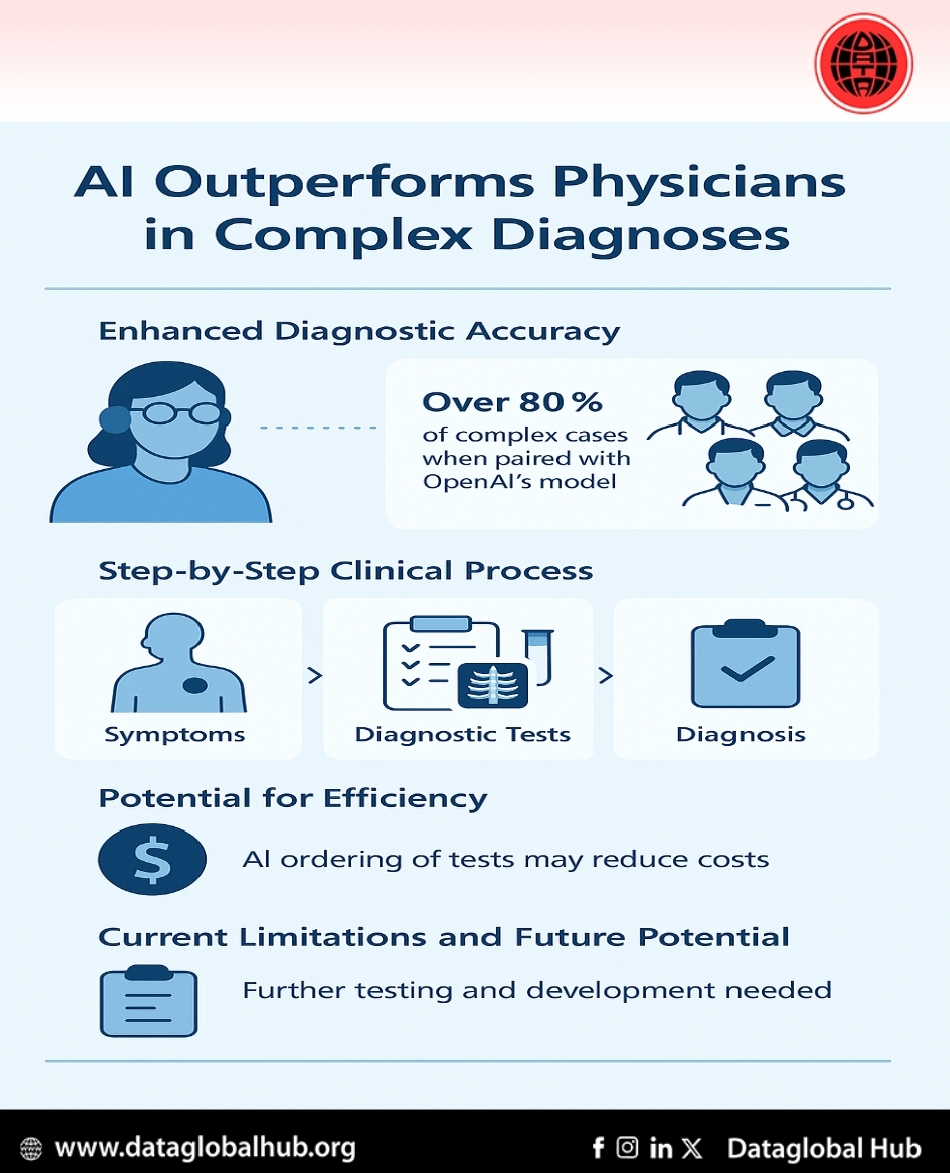
Microsoft’s AI Shows Promise in Complex Medical Diagnoses
Translate this article
Microsoft has developed an artificial intelligence system that outperforms human doctors in diagnosing complex medical conditions, representing a significant advancement in AI-driven healthcare. Led by Mustafa Suleyman, Microsoft’s AI unit has created a system that emulates a panel of expert physicians tackling challenging diagnostic cases.
Enhanced Diagnostic Accuracy
When paired with OpenAI’s advanced o3 model, Microsoft’s AI system accurately solved over 80% of complex case studies from the New England Journal of Medicine (NEJM). In comparison, human physicians, working without access to colleagues, textbooks, or chatbots, solved only 20% of the same cases. The system follows a step-by-step process, similar to clinical practice, by analyzing symptoms, requesting specific diagnostic tests (such as blood tests or chest X-rays, and arriving at a diagnosis.
The system relies on a “diagnostic orchestrator,” an AI component that collaborates with existing models from OpenAI, Meta, Anthropic, Google’s Gemini, and others. This orchestrator draws on expertise across multiple medical disciplines to achieve precise diagnoses in complex scenarios.
Potential for Efficien)cy
Microsoft’s system demonstrates efficiency in ordering diagnostic tests, which could lead to cost savings in specific contexts. However, the company emphasizes that AI is designed to complement, not replace, doctors. Physicians play critical roles beyond diagnosis, such as building trust with patients and navigating clinical uncertainties, which AI is not equipped to handle.
Exploring Advanced AI in Healthcare
Microsoft’s research, which is being submitted for peer review, highlights the limitations of traditional AI benchmarks like the United States Medical Licensing Examination, which prioritize memorization over deep reasoning. By focusing on complex NEJM case studies, Microsoft aims to develop AI that mirrors clinical decision-making.
The company describes its work as a step toward advanced AI systems, with Mustafa Suleyman suggesting that such systems could achieve high accuracy within 5-10 years, potentially easing pressures on healthcare systems. However, this timeline is speculative, as the technology requires significant further development.
Current Limitations and Future Potential
Microsoft acknowledges that its AI system is not yet ready for clinical use. Additional testing is needed to evaluate its performance on common symptoms and refine the diagnostic orchestrator. While the system shows promise in supporting clinicians with complex cases, its broader impact on healthcare remains uncertain and depends on future advancements.
A Step Toward Improved Healthcare
Microsoft’s research suggests that AI could enhance diagnostic accuracy and support clinicians in specialized settings. As the technology evolves, it may offer valuable decision support, potentially improving patient outcomes. For now, this work represents a promising step in the ongoing development of AI applications in healthcare.
About the Author

Aremi Olu
Aremi Olu is an AI news correspondent from Nigeria.
Recent Articles
Subscribe to Newsletter
Enter your email address to register to our newsletter subscription!